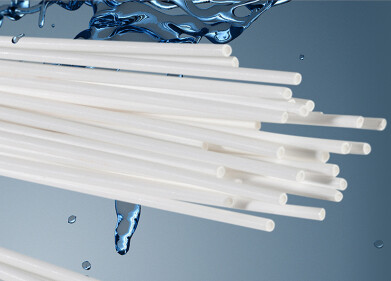Waste management
Why Are Plastics Bad?
Dec 07 2021
In recent years, there has been mounting awareness that plastic pollution is a problem that is quickly escalating out of control. More column inches than ever are devoted to the subject in the mainstream media, while governments are introducing laws aimed at curbing our plastic consumption. Nonetheless, this incredibly resilient substance remains at the heart of almost every product we handle in our daily lives.
Why, then, are plastics deemed to be so bad? Can they really be that damaging if we continue to use them on daily (if not hourly) basis? Here’s a brief rundown of the main reasons why plastics are a bad habit that the human race must phase down if it is to achieve a more sustainable future.
Production
The manufacturing of plastic products is, in itself, a highly polluting business. Plastics are constructed from processing unsustainable materials such as oil, gas and coal, which releases many harmful contaminants and greenhouse gases into the atmosphere. Meanwhile, the vast majority of plastic is not recycled and some of it cannot be recycled, contributing to a mounting waste problem.
Durability
The nature of plastics means that they do not degrade or decompose easily. This means that certain plastics can endure in the environment for over 1,000 years! During that time, they steadily leach toxins and contaminants into the surrounding area, compromising the soil quality and endangering the biospheres and ecosystems around them.
Wildlife
Indeed, animals are heavily impacted by plastic pollution. If they are not being indirectly affected by the aforementioned toxins, they can come into direct contact with the waste and suffer disastrous consequences as a result. Some animals become entangled in plastic waste and starve, drown or suffocate, while others ingest the items, wreaking havoc on their internal organs.
Food chain
It’s not just animals who are affected by plastic waste, either. When plastics are broken down into tiny pieces known as microplastics, they can be consumed by even the smallest lifeforms on Earth, such as plankton. Over time, the plastic in their bodies will accumulate and when they are consumed by predators, the next rung in the food chain also begins to accumulate the damaging waste.
Human health
Eventually, plastic waste can reach such quantities in animal lifeforms that they affect human health. Although it’s not yet fully understood just how dangerous microplastics are, there is evidence that the chemicals found within plastic can contribute to the contraction of cancer, birth defects in unborn children, damaged immune systems and endocrine disruption, among other complications.
Economy
Quite aside from the damaging environmental, biodiversity and human health dangers of plastics, there’s also a significant financial price to pay for their ubiquity. Every aspect of the global economy, from retail and commerce to tourism and textiles, can suffer from plastic pollution, resulting in billions of pounds worth of abatement costs.
Events
May 11 2025 Vienna, Austria
May 18 2025 Algiers, Algeria
23rd International Water Management Exhibition
May 20 2025 Prague, Czech Republic
Singapore International Water Week Spotlight 2025
Jun 23 2025 Singapore
Jun 25 2025 Sao Paulo, Brasil














